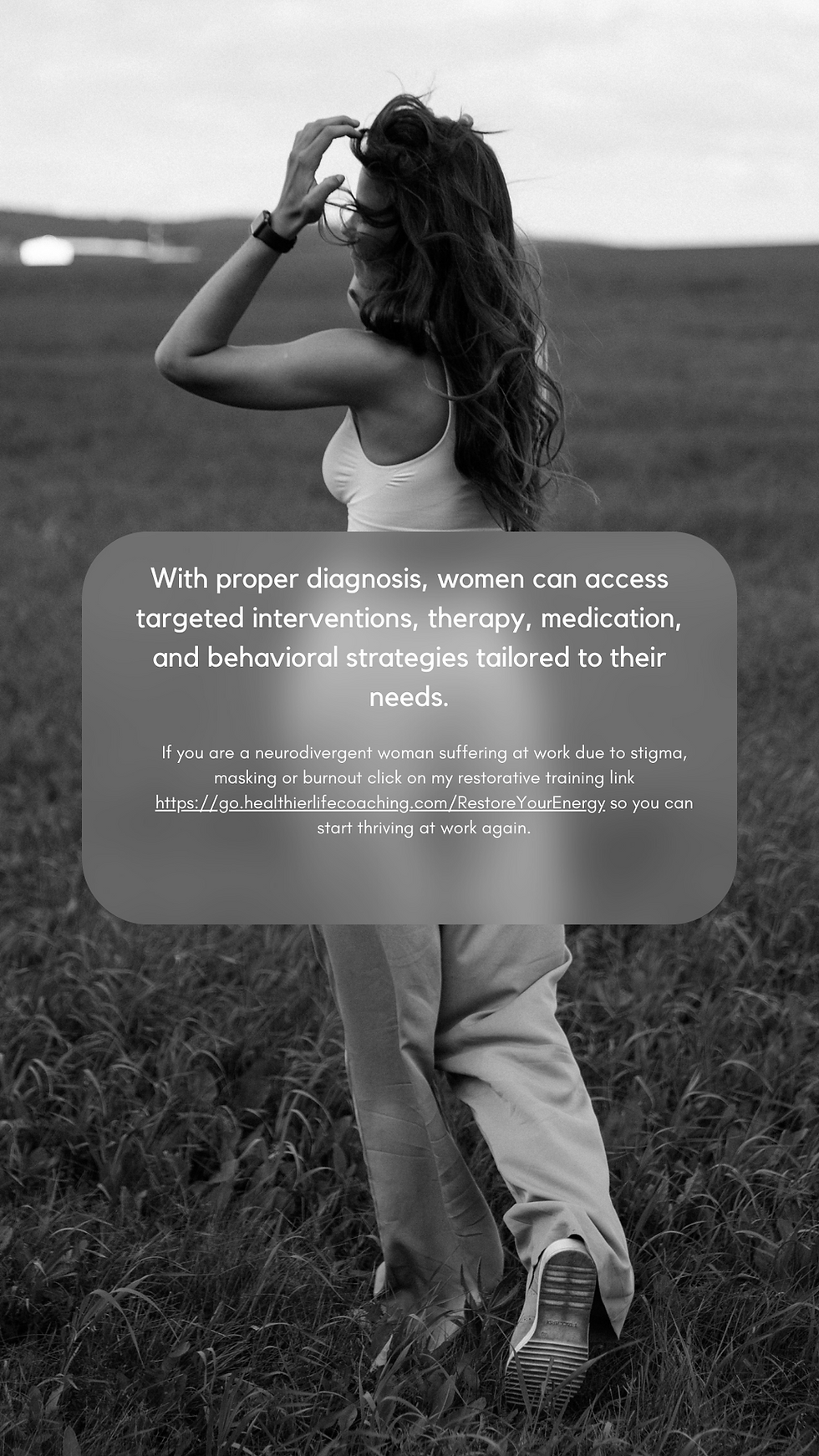The Impact of Late Diagnosis of ADHD in Women on Academic and Professional Life
- Gretchen Pound, PhD
- Dec 6, 2023
- 2 min read

Many girls and women with ADHD often go undiagnosed or receive their diagnosis much later in life. This delay in recognition can significantly impact their academic and professional endeavors.
Understanding Late Diagnosis in Women:
ADHD manifests differently in women, often presenting with subtler symptoms that can be misconstrued or overlooked. Girls might display fewer hyperactive symptoms and instead struggle with inattentiveness, disorganization, and difficulties in executive functioning. These traits can mask their ADHD or be misconstrued as personality traits, leading to a lack of timely diagnosis and intervention.
Impact on Academic Life:
Undiagnosed ADHD can create significant hurdles in academic settings. Women with undiagnosed ADHD may struggle to stay organized, manage time effectively, and concentrate on their studies. This can lead to underachievement despite their potential and capability, affecting grades, educational opportunities, and academic aspirations.
Professional Challenges:
In the professional sphere, women with undiagnosed ADHD may encounter difficulties in time management, maintaining focus, and meeting deadlines. These challenges can affect their job performance, leading to feelings of frustration, and self-doubt, and potentially impacting career growth and opportunities for advancement.
Emotional Well-being:
The repercussions of late ADHD diagnosis extend beyond academic and professional domains. Many women experience emotional distress due to their undiagnosed condition. Feelings of low self-esteem, anxiety, depression, and constant self-blame for not meeting societal or personal expectations are common.
Navigating Relationships:
ADHD symptoms can influence interpersonal relationships. Difficulties in time management, forgetfulness, impulsivity, and maintaining focus might cause misunderstandings or strain in personal relationships, impacting social interactions and connections.
Empowerment Through Diagnosis and Support:
However, a late diagnosis of ADHD in women is not the end of the story. Understanding and acknowledgment of one's condition can be empowering. With proper diagnosis, women can access targeted interventions, therapy, medication, and behavioral strategies tailored to their needs.
Conclusion:
The late diagnosis of ADHD in women significantly affects their academic and professional lives, emotional well-being, and relationships. Awareness of the unique ways ADHD manifests in women is crucial for timely identification and intervention. With proper support, women can learn to manage their symptoms effectively, navigate challenges, and harness their strengths to thrive academically and professionally.
Remember, a diagnosis is not a limitation but a stepping stone towards understanding oneself better and seeking appropriate support to live a fulfilling life despite the challenges posed by ADHD.
If you are a neurodivergent woman suffering at work due to stigma, masking or burnout click on my restorative training link https://go.healthierlifecoaching.com/RestoreYourEnergy so you can start thriving at work again.
And Remember
"I want to make a difference in people’s lives!
I work to ensure everyone has an
equal opportunity to succeed."
-- Gretchen Pound, PhD
